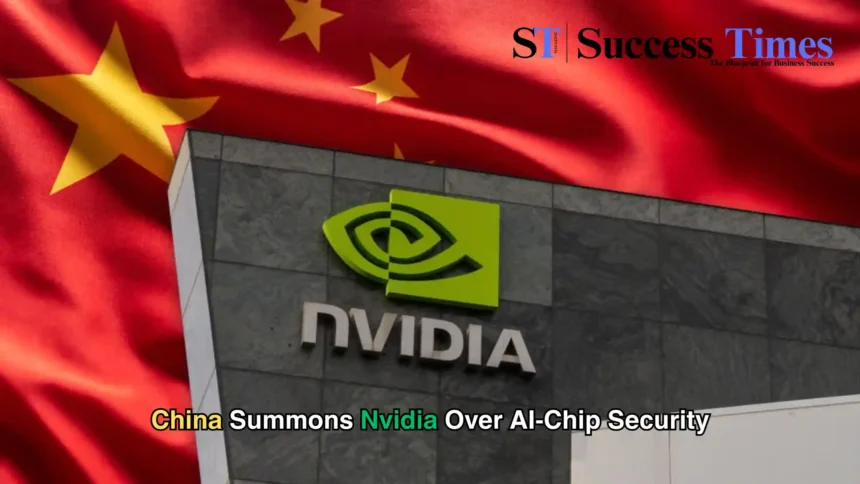China Summons Nvidia Over AI‑Chip Security
Chinese officials have called in U.S. chip company Nvidia on suspicions of “serious security problems” with its H20 AI chips, reviving tensions over tech and cyber issues. The Cyberspace Administration of China (CAC) has expressed worries about the existence of backdoors in the chips that allow remote shutdowns, leakage of information, and tracking of locations—concerns raised by unidentified U.S.-based AI professionals.
The H20 chips were specially designed for the Chinese market to meet U.S. export regulations. In July 2025, the U.S. government eased export limits partly, and Nvidia was able to resume restricted sales of the H20 chips in China. Nvidia CEO Jensen Huang recently went to Beijing to reaffirm the company’s commitment to the Chinese market, one of its biggest revenue streams.
Nvidia has dismissed the presence of any backdoors, claiming that cybersecurity is its priority and reiterating its commitment that its chips are of global standards. Contrary to the controversy, Nvidia is allegedly increasing production to meet strong demand from Chinese technology companies, ordering more than 300,000 H20 chips from TSMC.
However, the summons highlights China’s growing wariness of foreign tech dependence. Authorities are pushing for greater self-reliance in semiconductors, promoting domestic alternatives like Huawei’s Ascend chips and startups such as Biren and Cambricon.
This development reflects the broader U.S.–China tech rivalry, where chip exports have become geopolitical flashpoints. Nvidia now finds itself navigating a delicate balance between business opportunities in China and escalating scrutiny from both sides of the Pacific.







